Filter by
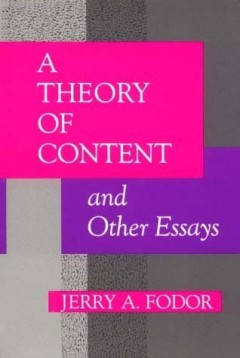
A Theory of Content and Other Essays
A Bradford book."OCLC-licensed vendor bibliographic record.
- Edition
- -
- ISBN/ISSN
- 9780262287999
- Collation
- 1 online resource (xii, 270 pages)
- Series Title
- -
- Call Number
- -
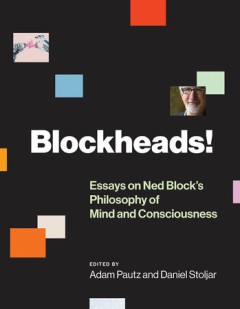
Blockheads! :essays on Ned Block's philosophy of mind and consciousness
New essays on the philosophy of Ned Block, with substantive and wide-ranging responses by Block. Perhaps more than any other philosopher of mind, Ned Block synthesizes philosophical and scientific approaches to the mind; he is unique in moving back and forth across this divide, doing so with creativity and intensity. Over the course of his career, Block has made groundbreaking contributions to …
- Edition
- -
- ISBN/ISSN
- 9780262348973
- Collation
- 1 online resource (vii, 634 pages).
- Series Title
- -
- Call Number
- -
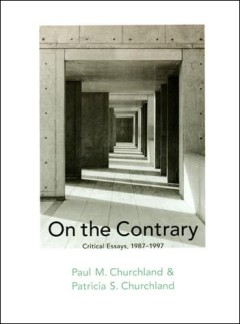
On the contrary :critical essays, 1987-1997
Paul and Patricia Churchland take on their critics—with verve, combativeness, and generosity. Paul M. and Patricia S. Churchland are towering figures in the fields of philosophy, neuroscience, and consciousness. This collection was prepared in the belief that the most useful and revealing of anyone's writings are often those shorter essays penned in conflict with or criticism of one's prof…
- Edition
- -
- ISBN/ISSN
- 0585021848
- Collation
- 1 online resource (xii, 349 pages) :illustrations.
- Series Title
- -
- Call Number
- -
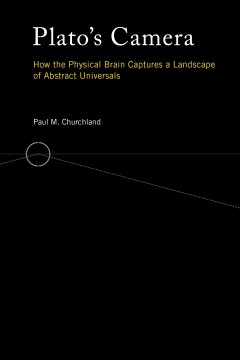
Plato's camera :how the physical brain captures a landscape of abstract unive…
A noted philosopher draws on the empirical results and conceptual resources of cognitive neuroscience to address questions about the nature of knowledge. In Plato's Camera, eminent philosopher Paul Churchland offers a novel account of how the brain constructs a representation--or "takes a picture"--of the universe's timeless categorical and dynamical structure. This construction process, which …
- Edition
- -
- ISBN/ISSN
- 9780262302869
- Collation
- 1 online resource (x, 289 pages, 12 unnumbered pages of plates) :illustrations (some color)
- Series Title
- -
- Call Number
- -

Like-minded :externalism and moral psychology
This title presents a proposal that the cognitive processes that make us moral agents are partially constituted by features of our external environments.OCLC-licensed vendor bibliographic record.
- Edition
- -
- ISBN/ISSN
- 9780262298926
- Collation
- 1 online resource (xi, 282 pages) :illustrations
- Series Title
- -
- Call Number
- -
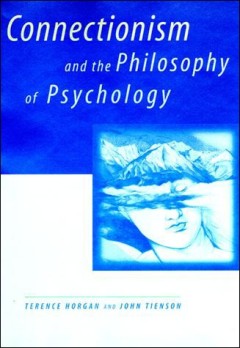
Connectionism and the Philosophy of Psychology
Human cognition is soft. It is too flexible, too rich, and too open-ended to be captured by hard (precise, exceptionless) rules of the sort that can constitute a computer program. In Connectionism and the Philosophy of Psychology, Horgan and Tienson articulate and defend a new view of cognition. In place of the classical paradigm that take the mind to be a computer (or a group of linked compute…
- Edition
- -
- ISBN/ISSN
- 9780262275675
- Collation
- 1 online resource (xiii, 207 pages) :illustrations
- Series Title
- -
- Call Number
- -
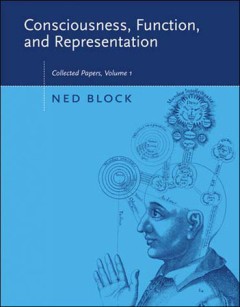
Consciousness, Function, and Representation, Volume 1: Collected Papers
"A Bradford book."AnnotationOCLC-licensed vendor bibliographic record.
- Edition
- -
- ISBN/ISSN
- 9780262268776
- Collation
- 1 online resource (vi, 636 pages) :illustrations.
- Series Title
- -
- Call Number
- -
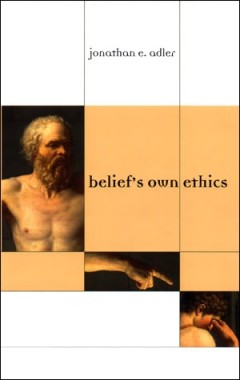
Belief's own ethics
"A Bradford book."The fundamental question of the ethics of belief is "What ought one to believe?" According to the traditional view of evidentialism, the strength of one's beliefs should be proportionate to the evidence. Conventional ways of defending and challenging evidentialism rely on the idea that what one ought to believe is a matter of what it is rational, prudent, ethical, or personall…
- Edition
- -
- ISBN/ISSN
- 9780262266826
- Collation
- 1 online resource (xv, 357 pages)
- Series Title
- -
- Call Number
- -
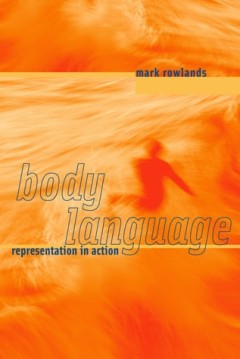
Body language :representation in action
"A Bradford book."An argument that activity provides a useful template for thinking about representation and that deeds are themselves representational: our representing of the world consists, in part, in certain sorts of deeds that we perform in the world.OCLC-licensed vendor bibliographic record.
- Edition
- -
- ISBN/ISSN
- 9780262282741
- Collation
- 1 online resource (241 pages)
- Series Title
- -
- Call Number
- -
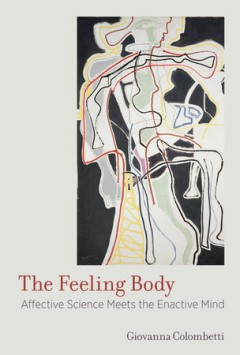
The Feeling Body: Affective Science Meets the Enactive Mind
In The Feeling Body, Giovanna Colombetti takes ideas from the enactive approach developed over the last twenty years in cognitive science and philosophy of mind and applies them for the first time to affective science -- the study of emotions, moods, and feelings. She argues that enactivism entails a view of cognition as not just embodied but also intrinsically affective, and she elaborates on …
- Edition
- -
- ISBN/ISSN
- 9780262318419
- Collation
- 1 online resource (xviii, 270 pages)
- Series Title
- -
- Call Number
- -
 Computer Science, Information & General Works
Computer Science, Information & General Works  Philosophy & Psychology
Philosophy & Psychology  Religion
Religion  Social Sciences
Social Sciences  Language
Language  Pure Science
Pure Science  Applied Sciences
Applied Sciences  Art & Recreation
Art & Recreation  Literature
Literature  History & Geography
History & Geography